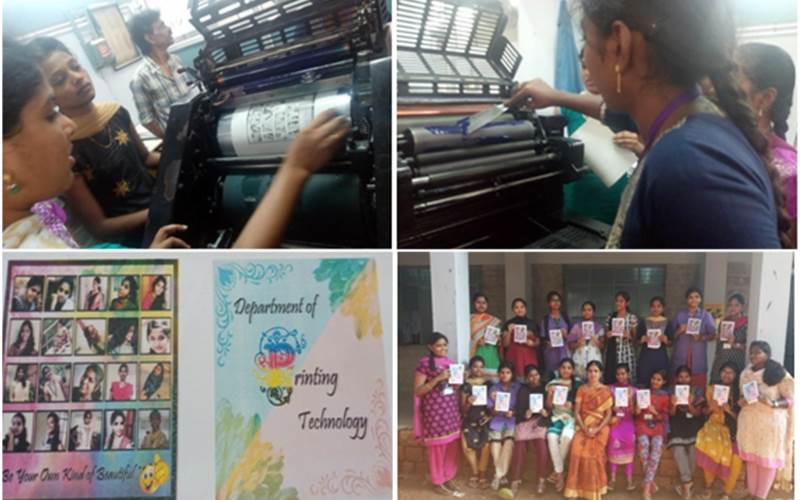Avinashilingam University adopts experiential learning methods
In an effort to make learning more relevant, the department of printing technology in Avinashilingam University, Coimbatore have begun adopting experiential learning technique for their students.
05 Apr 2019 | By Sriraam Selvam
Explaining the concept, Dr TKS Lakshmi Priya, head, department of printing, Avinashilingam University said, “Experiential learning is learning from experience. Unlike traditional teaching of merely delivering the concept and quoting examples, experiential learning requires student engagement and hands-on experiences which give way to inference and conceptualisation.”
Some of the features of experiential education are providing a proper mix of theory and practical knowledge, enabling freedom for thought and an environment to make mistakes, which will result in learning, giving scope for self-learning, collaborative learning and teamwork, making known the big picture of the subject or topic being taught, assisting the students to reflect upon what is taught or experimented, facilitating rework, repetitions or corrective actions based on feedback and providing access to necessary infrastructure and facilities for providing a wide experience.
“We have adopted this methodology recently and we believe in this was one of the strong points which lead to the accreditation of the BE programme in Printing Technology, by the National Board of Accreditation, for three years under tier-one ” said Priya.
As part of this technique, the department conducted ‘Printing Machines Laboratory’, a practical course, for the current semester of second-year students.
In this course, the students carried out practical experiments at various levels in offset printing, screen printing, digital printing and dye sublimation and study experiments in other printing technologies.
The objective of the experiment was to prepare A5 sized perfect bound notebook, with a four-colour wrapper, printed in offset. The facility available at the Saradalaya press (the University’s Press), is AB Dick single-colour mini offset machine and Polymaster plates.
The students gained several things including the full-cycle experiment has given the learners, a big picture of the concept, freedom to make mistakes, analyse and rework has given them a certain level of confidence, designing was a teamwork, printing was a collaborative task and binding was done individually, it was evident from the back wrapper design that students possessed a sense of self- promotion, working in a real-time production unit along with the employees has helped them to adapt to shop floor culture, failure in a supportive environment, has encouraged the students to explore the cause and find a means to rise up from the fall, experimenting with a poly-master and single-colour machine for a four-colour job, may have taken the life out of them, but it has definitely enhanced their dexterity and the take-home part of the activity (i.e., the notebook) is the highlight. The entire family will witness the creation of their ‘scientist’ and the word will spread,” concluded Priya.













 See All
See All